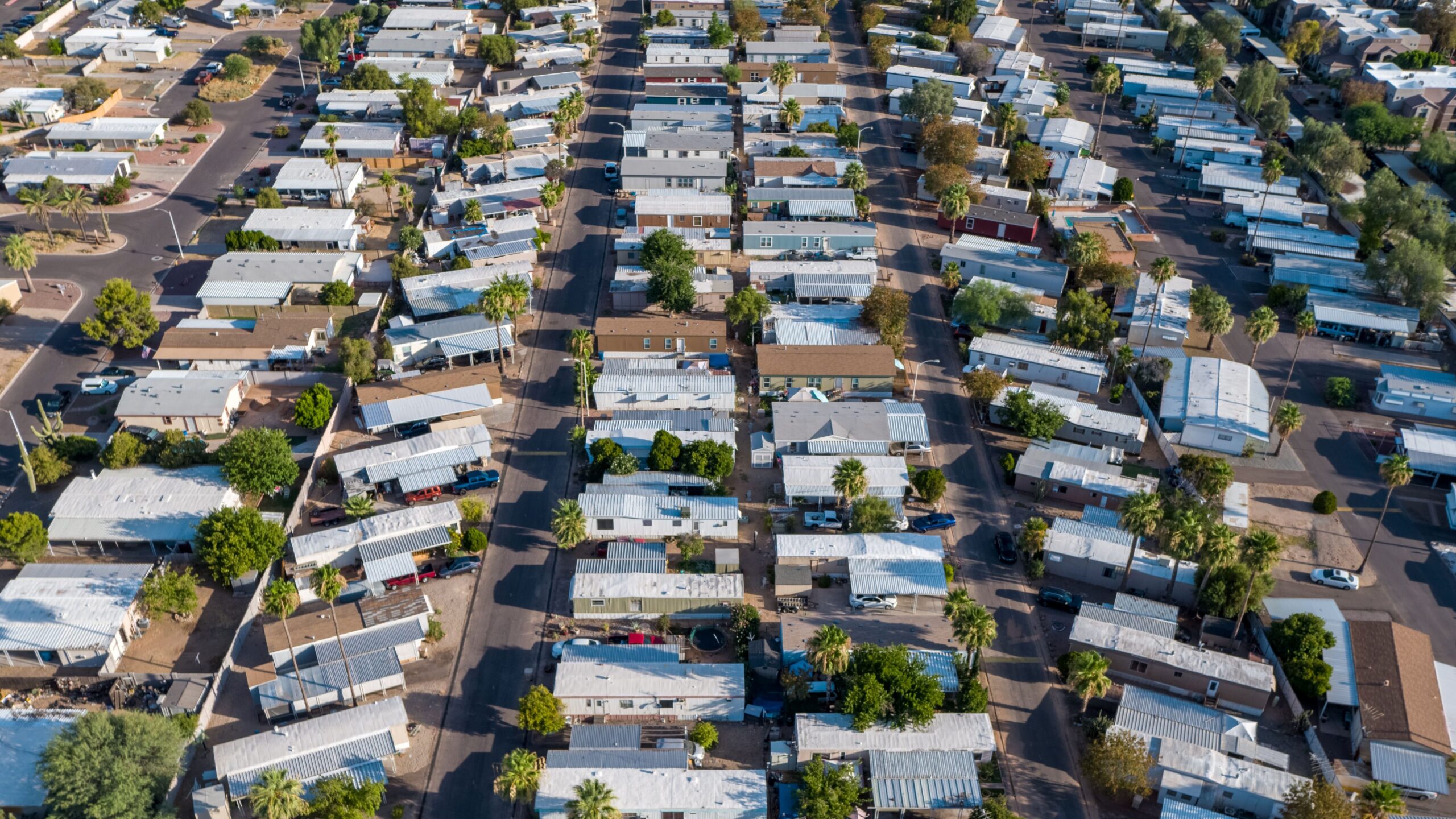Recession-Proofing Your Real Estate Portfolio: The Case for Mobile Home Park Investing
Amidst the grim headlines predicting a downturn in the real estate market, it’s important to shed light on a potentially recession-resilient investment: Mobile Home Parks (MHPs).
Let’s take a quick look at how MHPs performed during the last economic downturn. Impressively, between 2004 and 2018, operating income from mobile home parks saw an impressive 87% increase, as reported by Green Street Advisors, a global real estate research firm. What’s more intriguing is that this income never experienced a decline, even during the challenging times of the Great Recession in 2008.

Understanding Mobile Home Park Investments
Mobile home parks refer to the areas of land on which mobile homes or manufactured homes are placed. The residents own their homes and pay a monthly lot rent. This transfers a great deal of risk and responsibility to the residents allowing for the owner to focus attention on the management of the park, updating outdated amenities (clubhouse, playgrounds, common areas etc.) and uplifting the look and feel of the community (roads, lighting, landscaping, signage etc.)
They can be incredibly lucrative investments for several reasons. Firstly, the cost of acquisition and maintenance is typically lower compared to traditional real estate investments, such as apartment complexes or single-family homes. Secondly, they often have a higher yield per unit area, and lastly, they provide a continuous cash flow due to rent payments from residents.
How Can Mobile Home Park Investments Make Your Portfolio More Recession-Resilient?
- 1. Stable Demand & A Need For Affordable Housing: The demand for affordable housing increases during a recession as people are more likely to downsize or look for cheaper living alternatives. This makes mobile home parks particularly attractive during economic downturns, as they are one of the most affordable non-subsidized housing options – Period! The consistent demand means stable, regular income for MHP investors. In fact, according to Statista, in the last quarter of 2021, the average monthly rent for manufactured homes in the United States was $593. Using the same dataset, the average monthly asking rent for a two-bedroom apartment in 2023 was $1,320
- 2. Lower Operational Costs: Compared to other real estate investments, the cost of operating a mobile home park is relatively low. This is because, in many cases, the residents own their homes and are responsible for their maintenance. The park owner is typically only responsible for maintaining common areas and infrastructure, which can be less expensive than maintaining entire buildings. It’s typical to expect mobile home park operating expense to be 30-40% of gross income as compared to apartments which have historically been around 50-60% expense ratio
- 3. Lower Turnover Rate: Mobile home park residents usually own their homes and lease the land, making the turnover rate much lower than in other types of housing. The cost of moving a mobile home can be prohibitively expensive for many residents, encouraging them to stay put, leading to more stability for park owners. An apartment building generally can experience 40-60% of turnover each year whereas MHP experiences less than one-fifth that of the average apartment building
- 4. Diversification: Investing in mobile home parks offers a unique way to diversify your real estate portfolio. Having a diversified portfolio is a well-known strategy for mitigating risk, particularly during periods of economic uncertainty. This form of investment provides a different set of opportunities and challenges than traditional real estate, helping to spread risk across various sectors
- 5. High Yield Potential: Despite the lower price point of mobile homes, the rental yield can be competitive compared to other forms of real estate. As demand for affordable housing continues to grow, particularly during recession periods, mobile home park investments can offer excellent return potential
Final Remarks
While no investment is entirely recession-proof, mobile home park investing can provide a layer of protection and stability during economic downturns. The constant demand for affordable housing, lower operating costs, lower turnover rates, portfolio diversification, and high yield potential make mobile home park investments an attractive strategy for those looking to recession-proof their real estate portfolios.
As with any investment, it’s crucial to conduct due diligence, seek out experienced operators with strong track records and carefully consider the potential risks before investing. However, for those looking for a unique way to strengthen their portfolio against economic instability, mobile home parks are an option worth considering.
Disclosure: The information provided herein is for informational purposes only and does not constitute investment advice, endorsement, or a recommendation for any specific investment strategy or product. All investments carry a risk of loss, including the loss of principal. Before making any investment decisions, prospective investors should consult with their financial advisor, CPA, or other relevant professionals to evaluate individual circumstances and risks. It’s essential to conduct thorough due diligence and understand all potential risks before making any investment.
